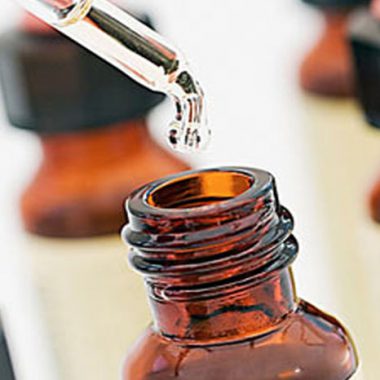GP practices with low prescribing quality rating more likely to prescribe homeopathy

GP practices that perform poorly across prescribing quality indicators are two times more likely to prescribe homeopathy, compared with those that perform well, new research has suggested.
Researchers from the University of Oxford found that over 2,700 homeopathy prescriptions were issued by GP practices over a six month period, costing a total of £36,532.
Over 600 practices issued at least one homeopathy prescription between December 2016 and May 2017, which researchers have suggested is ‘strongly associated with poor performance’ across a range of prescribing quality indicators.
The study, published in the Journal of the Royal Society of Medicine, analysed monthly prescribing data published by NHS Digital to determine which practices prescribed homeopathic treatments.
They then assessed practices using six prescribing quality measurements, which looked at issues of cost, safety, efficacy and patient recommendations.
The research team found that practices which had the worst prescribing quality scores were two times more likely to prescribe homeopathy than those with the best prescribing quality scores.
They also said that the worse a practice’s performance was on the standard prescribing measures, the more likely they were to have ever prescribed homeopathy.
Commenting on these findings, the authors wrote: ‘Even infrequent homeopathy prescribing is strongly associated with poor performance on a range of prescribing quality measures.
‘The association is unlikely to be a direct causal relationship, but may reflect underlying practice features, such as the extent of respect for evidence-based practice, or poorer stewardship of the prescribing budget.’
Lead researcher and senior clinical research fellow at the University of Oxford Dr Ben Goldacre said: ‘Although NHS expenditure on homeopathy is low, we believe the strong association between homeopathy use and poorer prescribing in general is more important than cost. It should raise concerns and may be of interest to those seeking to understand variation in clinical styles and the use of alternative medicine by clinicians.’
BMA GP committee clinical and prescribing policy lead Dr Andrew Green highlighted that ‘almost half of practices’ that did prescribe homeopathy, did so only once within the six month period, suggesting that it was ‘in response to an exceptional circumstance’.
But he added that the ‘tiny minority’ of practices which prescribe homeopathy more than once per week ‘undoubtedly deserve further study’.
Dr Green also stated: ‘BMA policy is clear, homeopathic substances have no place in the NHS, nor, I would propose, in community pharmacies.’
These findings come after NHS England announced its intention to ban GPs from prescribing homeopathic treatments, as part of cost saving measures.
NHS England said in November that it would be ‘pressing ahead’ with the removal of 18 ‘ineffective, unsafe and low clinical value treatments,’ including some dietary supplements, herbal treatments and homeopathy, in a bid to save the NHS £141m per year.
Visit Pulse Reference for details on 140 symptoms, including easily searchable symptoms and categories, offering you a free platform to check symptoms and receive potential diagnoses during consultations.









